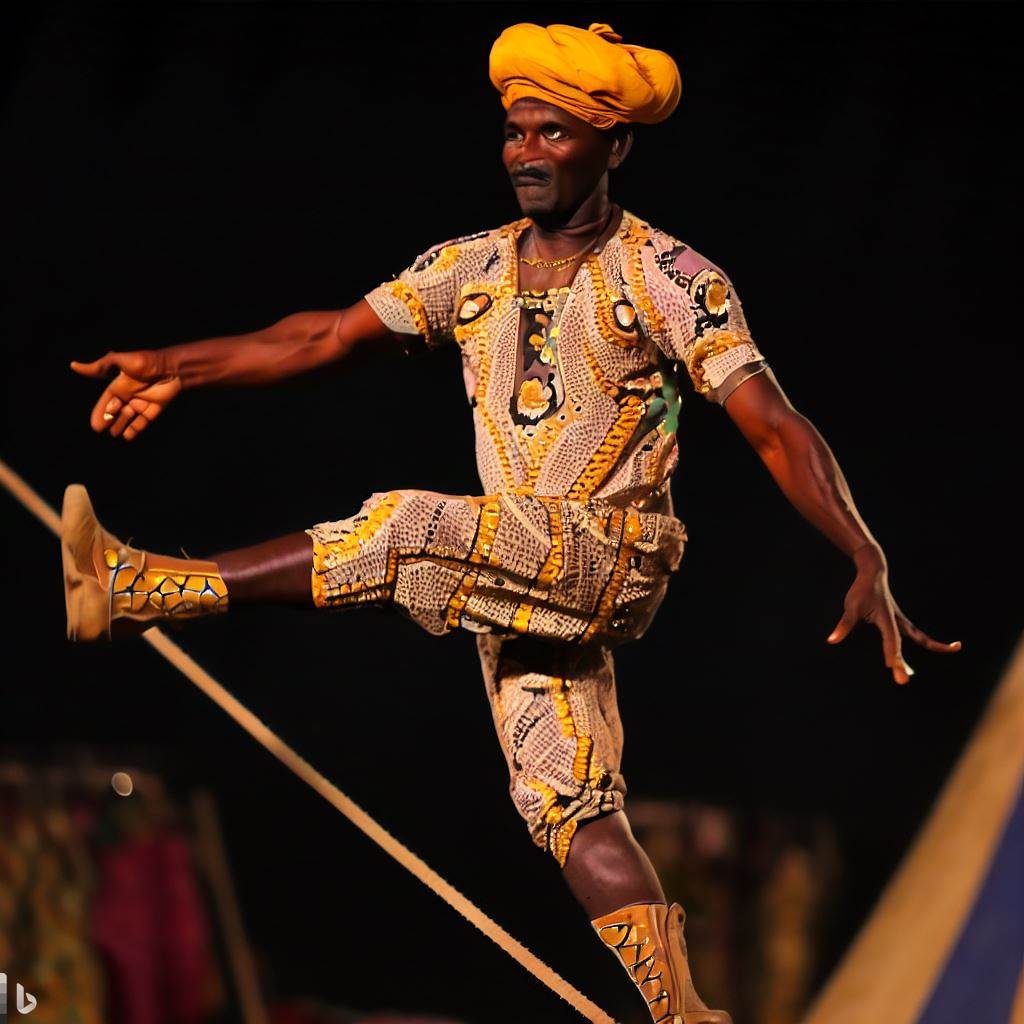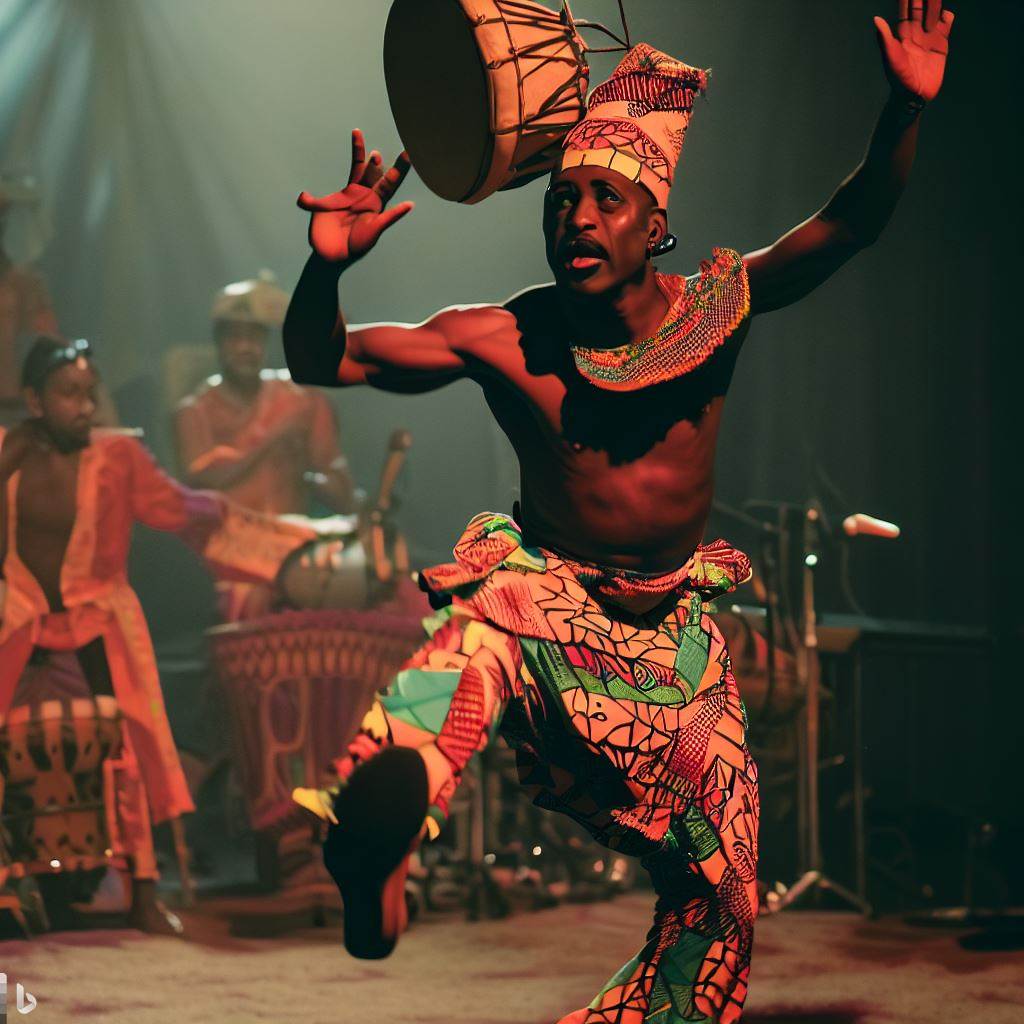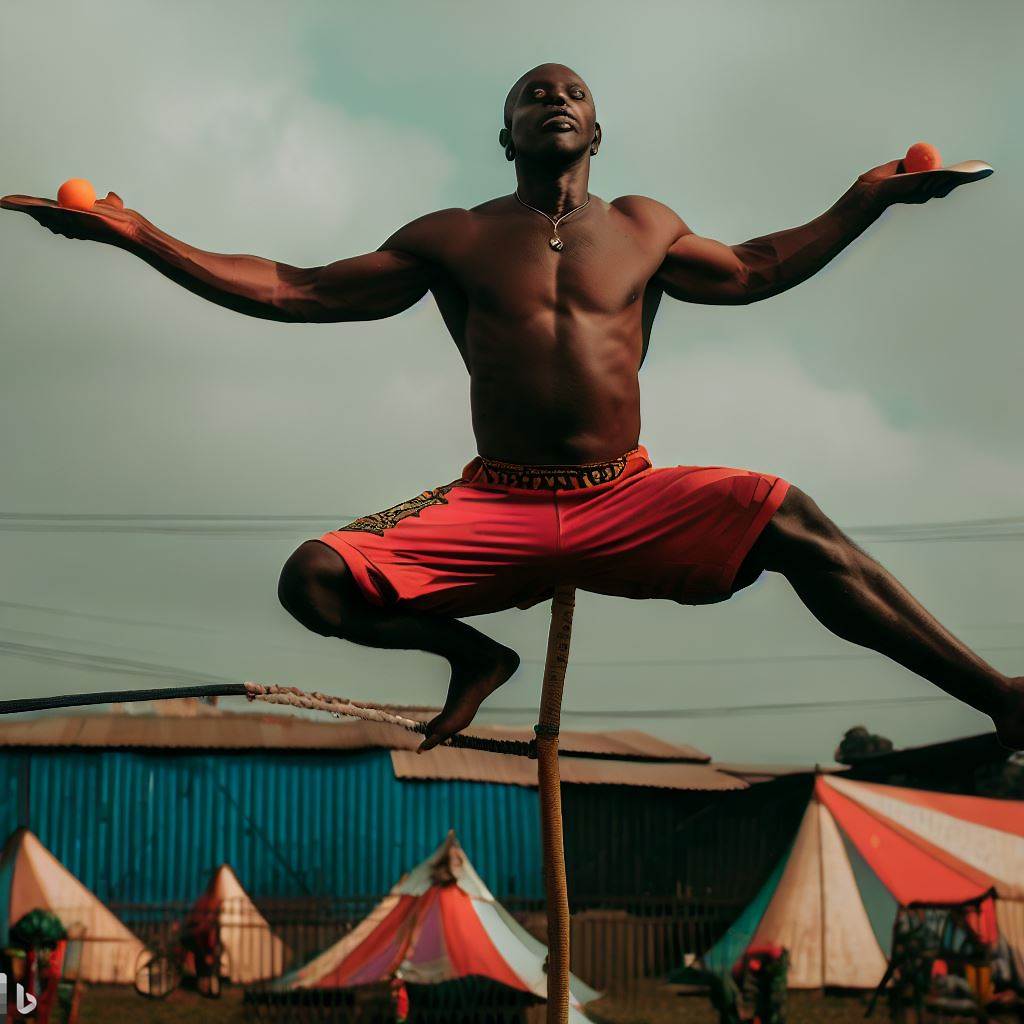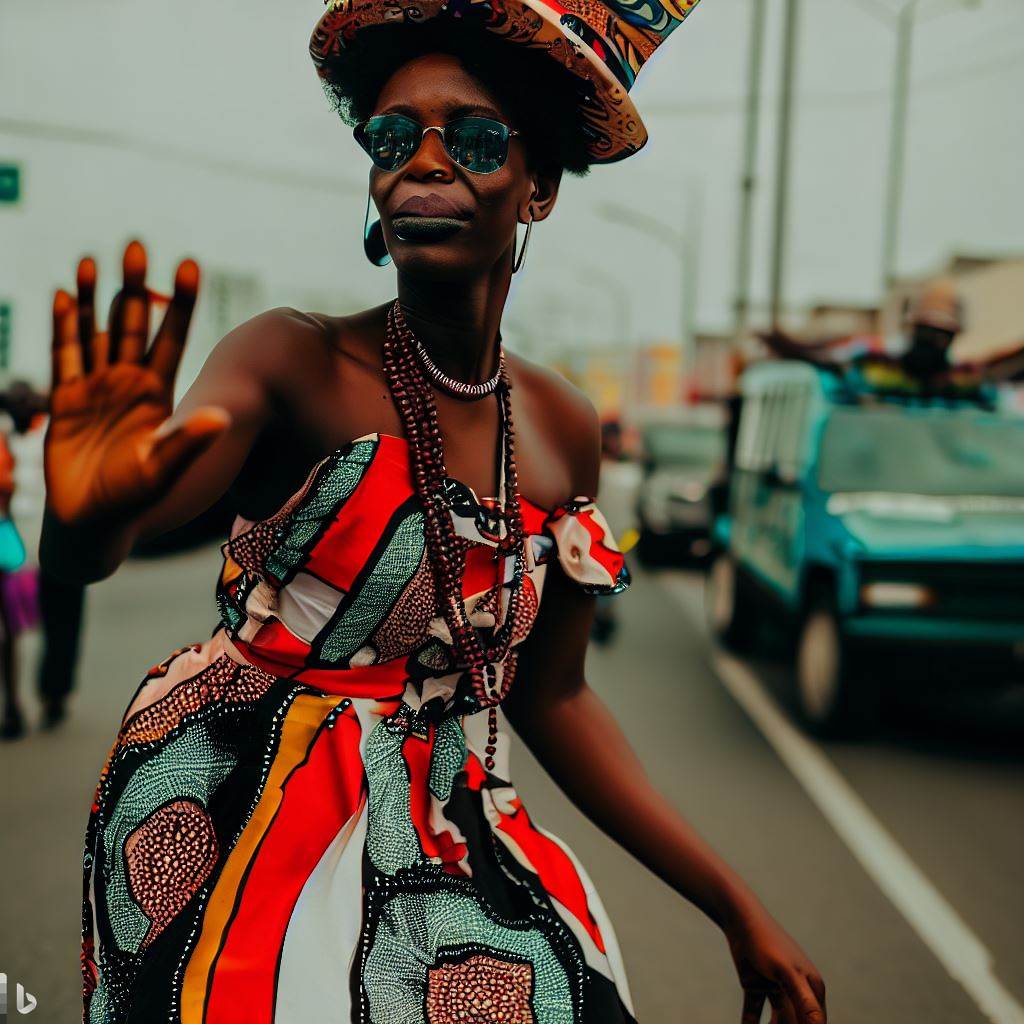Introduction
This exploration delves into the role of a circus performer in Nigeria, how they’ve adapted to changing trends and demands.
A. Circus Performer Role in Nigeria
- Nigerian circus performers have a rich history dating back centuries.
- Indigenous performances showcased acrobatics, fire-eating, and animal acts.
- Today, the role has evolved, blending tradition with modern entertainment.
- The circus has become a vibrant part of Nigeria’s cultural fabric.
B. Importance and Relevance
- Understanding this evolution sheds light on Nigeria’s cultural diversity.
- Circus acts, like juggling, resonate with traditional Nigerian skills.
- The circus industry contributes to the country’s economy and tourism.
- This study explores how circus performers adapt in a changing Nigeria.
Historical Background of Circus Performers in Nigeria
A. Early forms of entertainment in Nigeria
- Traditional Nigerian societies had various forms of entertainment that involved music, dance, and storytelling.
- Performances were held during festivals, ceremonies, and social gatherings to entertain the community.
- Traditional dance forms like the Eyo masquerade and the Ekpo dance showcased the artistic and acrobatic skills of performers.
B. Influence of colonialism on circus performances
- The arrival of colonial powers in Nigeria brought new forms of entertainment, including circus performances.
- European settlers introduced circus acts that featured acrobats, jugglers, clowns, and animal trainers.
- These performances provided a source of amusement and wonder for both the colonial masters and the local population.
C. Emergence of circus troupes in Nigeria
- In the early 20th century, Nigerian performers started forming their own circus troupes.
- These troupes combined traditional Nigerian entertainment forms with the influence of European circus acts.
- Circus performers in Nigeria showcased their skills in stunts, acrobatics, fire-breathing, and tightrope walking.
- The emergence of these troupes not only entertained the public but also provided employment opportunities for aspiring performers.
- One of the pioneering circus troupes in Nigeria was the “African Circus,” formed in the 1940s by Chief Ogunde, a renowned Nigerian playwright and performer.
- The African Circus featured various acts, including aerial performances, clown acts, and animal shows.
The historical background of circus performers in Nigeria reveals a rich and diverse entertainment culture.
From traditional forms of entertainment to the influence of colonialism and the emergence of circus troupes, Nigeria has witnessed the evolution of circus performance as an art form.
Today, circus performers in Nigeria continue to entertain audiences with their incredible skills and talents, contributing to the vibrant cultural landscape of the country.
Read: Becoming an Agent: Pathways in Nigeria’s Art Scene
Traditional Circus Performer Roles in Nigeria
A. Acrobats and Contortionists
Acrobats and contortionists have always played a significant role in the Nigerian circus scene.
These performers are highly skilled individuals who showcase jaw-dropping physical feats.
Their extraordinary flexibility, balance, and strength are aspects that amaze audiences.
Nigeria’s rich cultural heritage has greatly influenced the development of acrobatics in the country’s circus performances.
Traditional dances and rituals provided the foundation for the daring stunts performed by acrobats.
Over time, these skills have evolved and become more refined, resulting in breathtaking performances.
Acrobats often perform intricate and synchronized movements that require a great deal of precision and coordination.
They somersault through hoops, perform handstands on precarious platforms, and execute gravity-defying flips.
These acts continue to captivate audiences with their daring and graceful displays of human agility.
Similarly, contortionists in Nigeria have mesmerized spectators with their ability to twist and bend their bodies in unimaginable ways.
Their acts demand extreme flexibility and control, enabling them to contort their bodies into seemingly impossible positions.
The combination of strength, suppleness, and showmanship makes the performances of acrobats and contortionists a true spectacle.
B. Animal Trainers and Exotic Animal Acts
Animal trainers and exotic animal acts have also been an integral part of the Nigerian circus tradition.
These performers showcase their skills by training animals to perform various tricks and stunts.
Their acts often include lions, tigers, elephants, and other magnificent creatures.
Animal trainers in Nigeria invest a tremendous amount of time and effort to establish a bond with their animals.
They utilise positive reinforcement techniques, creating a relationship built on trust and mutual respect.
This approach ensures the animals’ well-being while allowing them to showcase their natural behaviours in a controlled environment.
Exotic animal acts add an element of thrill and excitement to the circus performances.
From lion tamers to elephant trainers, these performers display their ability to command and communicate with these majestic beasts.
Audiences are left in awe as they witness the remarkable collaboration between humans and animals.
C. Jugglers, Clowns, and Comedic Acts
Jugglers, clowns, and comedic acts provide the much-needed element of laughter and entertainment in Nigerian circuses.
These performers bring joy and amusement through their comic timing, slapstick humor, and impressive juggling skills.
Jugglers in Nigeria showcase their mastery by skillfully juggling objects such as balls, knives, and even fire.
Their acts require precision, coordination, and impeccable hand-eye coordination.
Through their exceptional talent, they keep audiences enthralled with their mesmerizing performances.
Clowns, on the other hand, are known for their clownish antics, exaggerated gestures, and funny expressions.
They use slapstick comedy to elicit laughter and create a lively atmosphere.
Their playful interactions with the audience and fellow performers contribute to the overall jovial ambiance of the circus.
Comedic acts in Nigerian circuses encompass a variety of performances, including stand-up comedy and humorous sketches.
These acts often incorporate cultural references and social commentary, providing a unique form of entertainment.
Audiences are not only entertained but also encouraged to reflect on societal issues through the lens of humor.
The traditional circus performer roles in Nigeria encompass a diverse range of talents and skills.
Acrobats and contortionists demonstrate extraordinary physical abilities, while animal trainers and exotic animal acts showcase the incredible bond between humans and animals.
Jugglers, clowns, and comedic acts bring laughter and light-heartedness to the circus atmosphere.
These performers continue to evolve, incorporating new techniques and ideas while preserving the rich cultural heritage of Nigerian circus performances.
Transform Your Career in Nigeria
Discover unmatched expertise with our personalized Career Consulting service. Navigate Nigeria’s job market with a strategy tailored just for you.
Get StartedModernization and Western Influence on Circus Performances in Nigeria
A. Introduction of new circus skills and acts
Over the years, the circus performer role in Nigeria has evolved due to modernization and Western influence.
One significant aspect of this evolution is the introduction of new circus skills and acts.
In the past, circus performances in Nigeria were limited to traditional acts such as acrobatics, contortion, and fire dancing.
However, with modernization, performers have incorporated new skills such as aerial silk, trapeze, and juggling into their repertoire.
These new skills have not only added variety to the performances but have also attracted a wider audience.
The introduction of these acts has enabled circus performers to showcase their versatility and adaptability to changing trends in the entertainment industry.
B. Collaboration with international circus performers
The modernization of circus performances in Nigeria has also been influenced by collaborations with international circus performers.
In the past, circus performers in Nigeria had limited exposure to the techniques and styles of international performers.
However, with globalization, there has been an increase in cultural exchange, leading to collaborations between Nigerian and international circus performers.
These collaborations have resulted in the fusion of different performance styles and techniques, creating a unique blend of traditional and modern circus acts.
International performers bring in new ideas and perspectives, enriching the Nigerian circus scene and broadening its appeal.
C. Use of technology and special effects in performances
Another aspect of modernization in Nigerian circus performances is the use of technology and special effects.
In the past, circus performances relied mainly on physical skills and props.
However, with advancements in technology, performers can now incorporate special effects, lighting, and sound effects into their acts.
This use of technology adds a new dimension to the performances, creating a more immersive and visually stunning experience for the audience.
It allows performers to create magical and awe-inspiring moments that were not possible in traditional circus acts.
Additionally, the use of technology enables performers to push the boundaries of creativity and innovation, making the circus performances in Nigeria more dynamic and engaging.
The evolution of the circus performer role in Nigeria has been greatly influenced by modernization and Western influence.
The introduction of new circus skills and acts, collaborations with international performers, and the use of technology have all contributed to the transformation of the Nigerian circus scene.
These changes have not only enhanced the quality of performances but have also widened the audience’s appreciation for the art of circus in Nigeria.
Read: Making Beats: Software Choices of Top Nigerian Producers
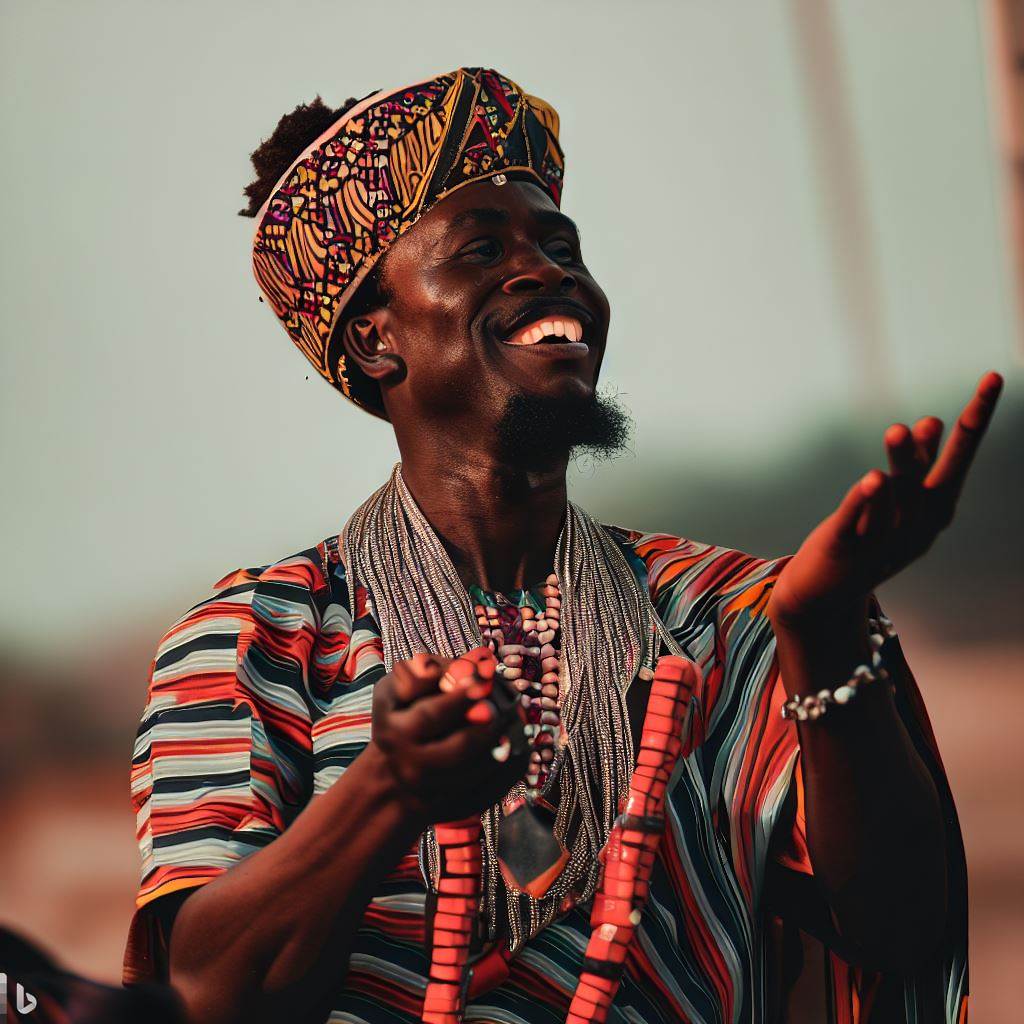
Challenges Faced by Circus Performers in Nigeria
A. Limited Opportunities and Recognition
- Circus performers in Nigeria face limited opportunities for growth and development.
- The circus industry in Nigeria is not well-established, leading to a lack of recognition for performers.
- Limited opportunities result in performers being unable to showcase their skills and talents to a wider audience.
- Without sufficient platforms, performers are unable to gain the recognition they deserve for their hard work.
B. Social Stigma and Misconceptions
- Circus performers in Nigeria often face social stigma and misconceptions surrounding their profession.
- Many Nigerians perceive circus performances as low-status entertainment, which affects the perception of performers.
- The negative stereotypes associated with circus performers hinder their societal acceptance and growth.
- Overcoming the social stigma becomes an additional challenge for Nigerian circus performers.
C. Lack of Government Support and Funding
- Nigerian circus performers struggle with a lack of government support for their art form.
- The government fails to recognize the circus industry as a valuable cultural asset that deserves funding.
- Without financial support, circus performers struggle to access training, equipment, and proper facilities.
- The lack of government investment negatively impacts the overall development and sustainability of the circus industry in Nigeria.
The challenges faced by circus performers in Nigeria are significant and hinder their professional growth.
Limited opportunities and recognition limit their ability to showcase their talents, while social stigma and misconceptions further marginalise them.
The absence of government support and funding creates additional barriers to their success.
Overcoming these challenges requires a collaborative effort from the government, society, and the performers themselves to promote the circus industry as a valued and respected art form in Nigeria.
Read: Traditional Elements in Modern Nigerian Music Production
Success Stories of Circus Performers in Nigeria
A. Notable circus performers and their achievements
- Tunde Adeyemi: Renowned for his incredible acrobatic skills and has won several national awards.
- Chika Okonkwo: A talented contortionist who has performed in international circus festivals, mesmerizing audiences worldwide.
- Efe Ojieh: A skilled juggler who has set a Guinness World Record for juggling the most balls simultaneously.
- Amina Ibrahim: A trapeze artist who has performed death-defying stunts in numerous circus shows.
B. Positive impact of circus on individual lives and communities
- Improved self-confidence: Circus performers develop a strong belief in their abilities, boosting their self-esteem.
- Enhanced physical fitness: Rigorous training routines strengthen performers’ bodies, leading to improved health and agility.
- Enhanced cognitive skills: Circus performers need to remember choreography and perform intricate moves, sharpening their memory and focus.
- Empowerment and social integration: Circus schools and performances create opportunities for marginalized individuals to actively participate in society.
- Promotion of cultural diversity: Circus performances often incorporate traditional Nigerian dance and music, preserving cultural heritage.
- Inspiring the youth: Success stories of circus performers motivate young Nigerians to pursue their dreams fearlessly.
- Community engagement: Local circus shows bring together people of different backgrounds, fostering unity and dialogue.
Whether as a performer or an audience member, participating in the world of circus can offer a wide range of benefits and opportunities for personal growth and community development.
Read: Interviews with Nigeria’s Top Music Producers: Insight & Advice
The Future of Circus Performer Role in Nigeria
A. Emerging trends and new opportunities
- Circus arts in Nigeria are becoming more diverse and modern, incorporating new skills and acts.
- Contemporary circus performances, such as aerial acrobatics and fire dancing, are gaining popularity in Nigeria.
- Technological advancements have opened up new possibilities for circus performers, such as using projections and interactive devices.
- More collaboration between circus artists and other art forms, like dance and theater, is emerging in Nigeria.
- The rise of social media and online platforms has provided circus performers with a wider reach and exposure.
B. Efforts to preserve and promote traditional circus acts
- Many circus companies in Nigeria are working to preserve traditional circus acts, like acrobatics and clowning.
- These companies organize workshops and training programs to pass on traditional skills to the younger generation.
- Cultural festivals and events feature traditional circus acts, promoting their significance and cultural heritage.
- Circus schools and academies are being established to provide a formal education in traditional circus arts.
- Partnerships between traditional circus companies and modern circus groups help preserve traditional acts while infusing contemporary elements.
C. Importance of supporting and nurturing circus talent in Nigeria
- Investing in circus talent development can provide young performers with promising career opportunities.
- Circus arts contribute to the cultural diversity and creative economy of Nigeria.
- Circus performers often serve as cultural ambassadors, showcasing Nigerian talent internationally.
- Nurturing circus talent can create job opportunities within the entertainment industry, boosting the economy.
- Supporting young circus artists can empower them and promote inclusion and diversity within the performing arts.
The future of the circus performer role in Nigeria is characterized by emerging trends and new opportunities.
With the incorporation of diverse skills and acts, circus arts in Nigeria are evolving and adapting to modern times.
Efforts to preserve traditional circus acts are also being made, through workshops, cultural events, and partnerships with modern circus groups.
It is crucial to support and nurture circus talent in Nigeria, as it contributes to the country’s cultural diversity, creative economy, and international representation.
By investing in circus talent development, Nigeria can foster promising careers and create job opportunities while promoting inclusion and diversity in the performing arts.
Conclusion
The evolution of the circus performer role in Nigeria has been a fascinating journey.
From its humble beginnings as street performers to becoming recognized artists, circus performers have played a significant role in the country’s entertainment industry.
It is essential to recognize and appreciate the contributions made by circus performers.
They have not only entertained audiences but have also brought joy to the lives of many.
Their skills, dedication, and commitment deserve admiration and respect.
Looking ahead, the future of circus in Nigeria holds great promise.
With the growth of the performing arts sector and the increasing appreciation for diverse forms of entertainment, the circus is poised to thrive.
However, it is crucial to continue supporting and nurturing circus talents to ensure their continued success.
The evolution of the circus performer role in Nigeria has been remarkable.
Recognizing and appreciating their contributions will help preserve the rich circus tradition and inspire future generations to pursue this unique form of entertainment.
The future of circus in Nigeria looks bright, and with continued support, it will undoubtedly flourish.

